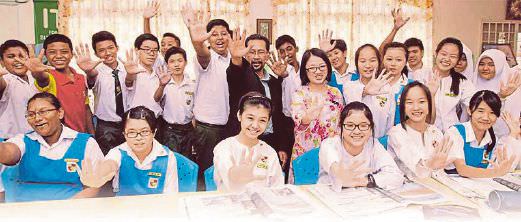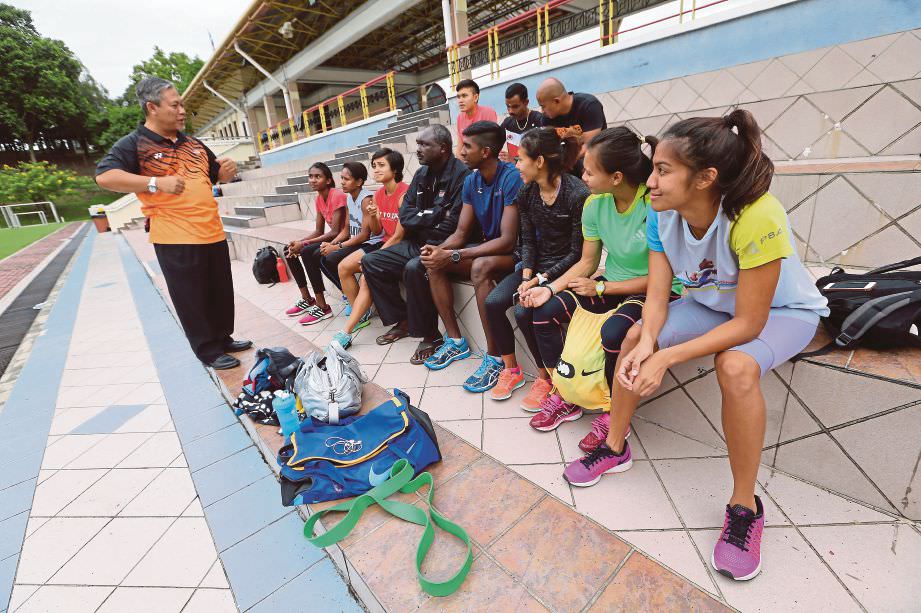KUALA LUMPUR: THE first examination under the new Form Three Assessment (PT3) system beginning today is a positive step towards nurturing world-class students with exemplary character.
Universiti Tun Hussein Onn Malaysia’s Faculty of Science, Technology and Human Development Centre head, Dr Mohd Akbal Abdullah said under PT3, students would be trained to develop their soft skills, including communication skills which are vital in today’s advancing world.
He said soft skills were given a priority under the PT3 and so it made the assessment more wide-encompassing.
“Communication, leadership, and organisational skills are vital in today’s workforce, and they will continue to be in the future.
“Under the PT3, these skills would be honed, assessed and cultivated by the teachers in a consistent manner.”
Akbal said under the new assessment, the teacher’s role is now more focused on his students character building.
He added that PT3 would produce a generation of students who do notput their success solely on the result of an examination paper.
“Although examinations are important but it is only as a measure to ensure that students were able to follow the lessons taught,” he said.
The success of character building , he said, relied also on the student’s own effort, and he would determine his own success under the PT3.
Akbal hoped that Form Three students would be able to make use of their knowledge and skills and contribute them into nation-building.
Former Education Ministry director-general Tan Sri Alimuddin Mohd Dom said that under the PT3, teachers would be able to development each individual student up to his or her full potential.
He said as teachers would be the one assessing and giving out questions for students, they would know better on what subjects to focus on teaching.
“Parents would be able to know their child’s performance at school, once they receive all four reports including the psychometric and sports assessment.
“This way, teachers and parents will be able to tell if a student has an inclination towards science or research, while the sports assessment will take into account extra-curricular activities,” he said, adding that PT3 aimed at moving towards a more holistic approach to education.
Alimuddin said all the skills presented by the students would be recognised, and they are valuable for their future intake at universities or job applications.
Taylor’s University vice-president Prof Dr Selvaraj Oyyan Pillay lauded the new system and said it would put Malaysia on par with some of the best education systems in the world.
Selvaraj, who is the head of the university’s Centre for Continuing Professional Education (CPE), said the introduction of PT3 was very timely because Malaysia is moving towards a global approach to education.
“This system has been implemented at most developed countries and this is definitely a good system for Malaysia to go forward,” he said.
Selvaraj said PT3 would be able to enhance the relationship between the school, teachers and its students, as it will bring the students’ talents to the attention of teachers.
“Teachers who know their students well would be able to assess them, instead of having an examiner who doesn’t know them at all and how they are performing at school.
“Teachers can now understand their students better, not only based on their academics results, but based on their vocational skills as well,” he said. Lead Training Centre faculty mentor, Prof Dr Hoo Ke Ping stressed the advantage of PT3 as it could overcome the number of school drop-out cases as it would sustain a student’s interest during lessons.
He said the new assessment format would allow students, who may have the potential to improve themselves academically, to stay on and continue with their studies.
Hoo said there were about 150,000 cases of students dropping out of school annually due to unsatisfactory exam results, and this figure represented about 30 per cent of the overall student population.
He said the PT3 could help to dramatically reduce these statistics as a lot of their assessment is spread out in the school year, and based on various assignments they have to complete.
“With the PT3 under the schoolbased assessment or PBS, students would be interested to come to school where they would have a chance to cultivate their talents through field work and not merely based on exams,” said Hoo, whose field of expertise is finance and economics.
The Education Ministry today till July 18 for all schools to hold the final PT3 assessment for History and Geography, which would be conducted via case studies instrument.
All secondary schools have been allocated 24 days, beginning Aug 6, to conduct oral tests (listening and speech) for Bahasa Melayu and English language.
The ministry has also fixed Oct 12 until Oct 17 for schools to conduct written tests for Bahasa Melayu, English Language, Science, Mathematics, Islamic Studies, Living Skills, Arabic, Chinese, Tamil, Iban and Kadazandusun language subjects.
-NST








